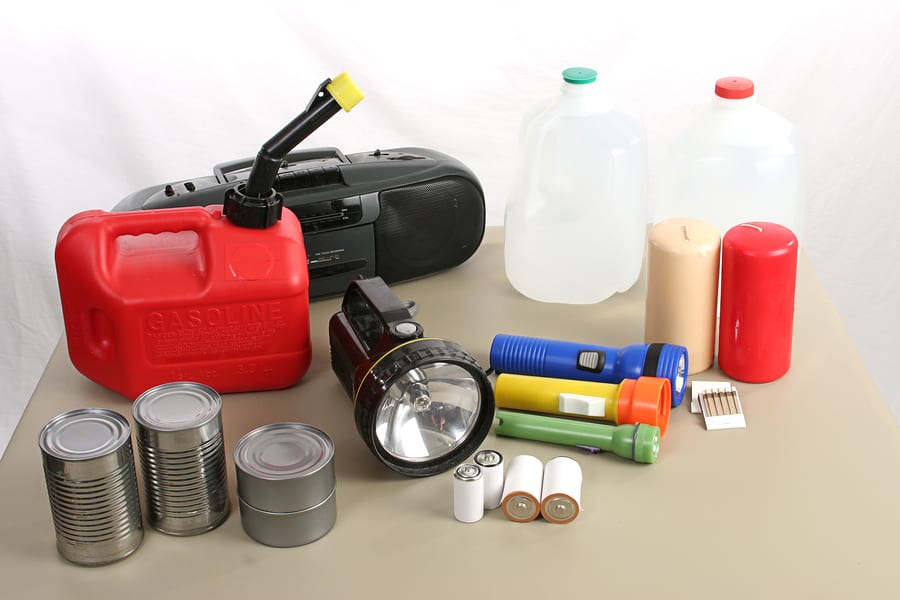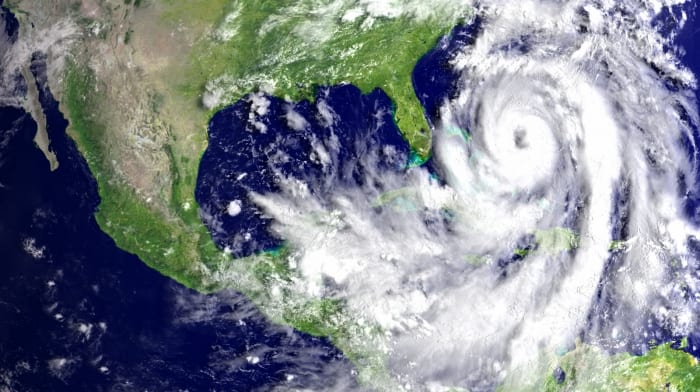Here are some tips to get you prepared for the hurricane season. Also find out how to keep safe before, during and after bad weather.
Before the Storm
- Protect your windows from the threat of flying debris, by installing shutters.
- Ensure that your roof and foundation are secure.
- Check for termite damage.
- Trim tree branches.
- Have an up-to-date insurance policy.
- Secure emergency supplies and important documents in water tight containers.
- Have a portable first-aid kit.
- Know the location of the nearest emergency shelter.
- Monitor the amount of rainfall outside.
- Secure emergency supplies and important documents in water tight containers.
- Keep on hand lumber, a hammer, torchlight, masking tape, medicine, boots, rubber gloves, raincoat, nails, rope, wires, plastic sheeting, and sandbags.
- Have enough water stored in sealed plastic containers to allow for cooking, bathing, washing and other domestic chores for two weeks.
- Have canned foods and dried goods and a portable transistor radio.
- Keep listening to your local radio station for updates and advisories.
- Always have a plan for your home as well as your office.
- Persons living in low-lying areas should move household items to higher levels and prepare to evacuate when the water begins to rise.
- Turn off all electrical appliances.
- Remove TV antennas from the roof.
- Have emergency cash available.
Before the Storm – Farmers
- Store livestock feed and supplies above expected water levels.
- Keep on hand material such as lumber, plywood, nails, rope, wire, hammer, sandbags, boots, raincoats, lanterns and a battery-operated radio.
- Store important documents in watertight containers.

Terms to Know
Flood Watch – Period during which flood monitoring, forecasting and flood warnings are carried out. During this time the probability of flooding is assessed and information disseminated.
Flood Alert – Period of intense data collection, monitoring and assessment. The possibility of flooding is present.
Flood Warning – Issued when indications show that water levels will exceed the alert level within 24 hours.
Small Craft Advisory – Issued when weather conditions make small craft operations marginally safe. Issued for moderate sea conditions, winds of 20 mph or low visibility due to haze.
Small Craft Warning – Issued when conditions are unsafe for small craft operations. Issued for tropical depressions, storms, hurricanes and rough seas.
Storm Warning – Issued for an area when tropical storm conditions are expected to occur within 24 hours or less.
Tropical Wave – Is a low-pressure trough or a weak low-pressure circulation.
Tropical Cyclone – The general term used for anti-clockwise circulations originating over tropical waters.
Tropical Disturbance – An area of organised convection in the lower atmosphere which may or may not be associated with a surface low-pressure system and which has maintained its identity for at least 24 hours.
Tropical Depression – Is a tropical cyclone in which the maximum average surface wind is 38 mph or less.
Tropical Storm – A well organised tropical cyclone has maximum average surface winds of 39-73 mph.

The District Emergency Organisations (DEOs)
The District Emergency Organisation (DEO) operates as the volunteer arm of the Department of Emergency Management (DEM. The role of the DEO is to organise and coordinate the resources of the community so as to allow for an effective response in time of crisis.
The DEO works with the community to develop and operationalise disaster prevention and disaster preparedness programs to lessen the impact of identified hazards such as hurricane, flood and earthquake, fire, aircraft and vehicular accidents and is also becoming more and more involved in the fight against environmental hazards.
Joining a District Emergency Organisation in your community is another step towards getting ready for the season. And, you receive training in first aid and chainsaw operation. Here’s how you can help.
- Find the nearest DEO and become a volunteer.
- If you are a carpenter or artisan you can offer your assistance.
- In case of a storm or hurricane, members can assist with makeshift housing after the system has passed.
At the Shelter
- The senior warden is the supreme authority in the shelter.
- The senior warden can call on any occupant of the shelter to assist with its operation.
- Every occupant of the shelter should be cooperative.
- If a state of emergency is proclaimed at any time under the Emergency Powers Act, all persons within the shelter will be subject to the orders made under the Act and will be liable for such penalties as may be imposed for failure to comply.
- The senior warden and all assistants cannot accept responsibility for anyone’s personal property.
Click here for more information and to find your nearest hurricane shelter.
